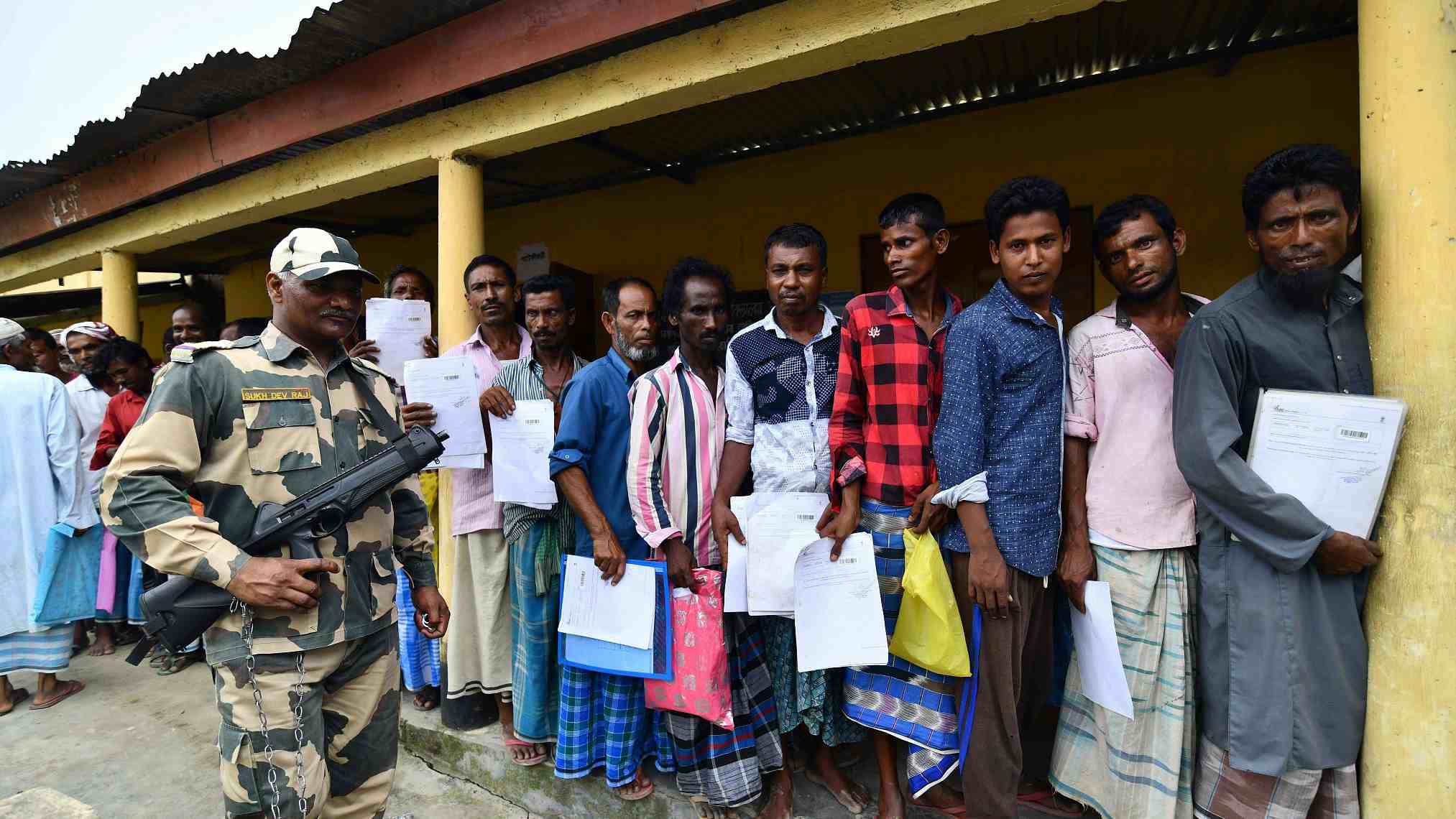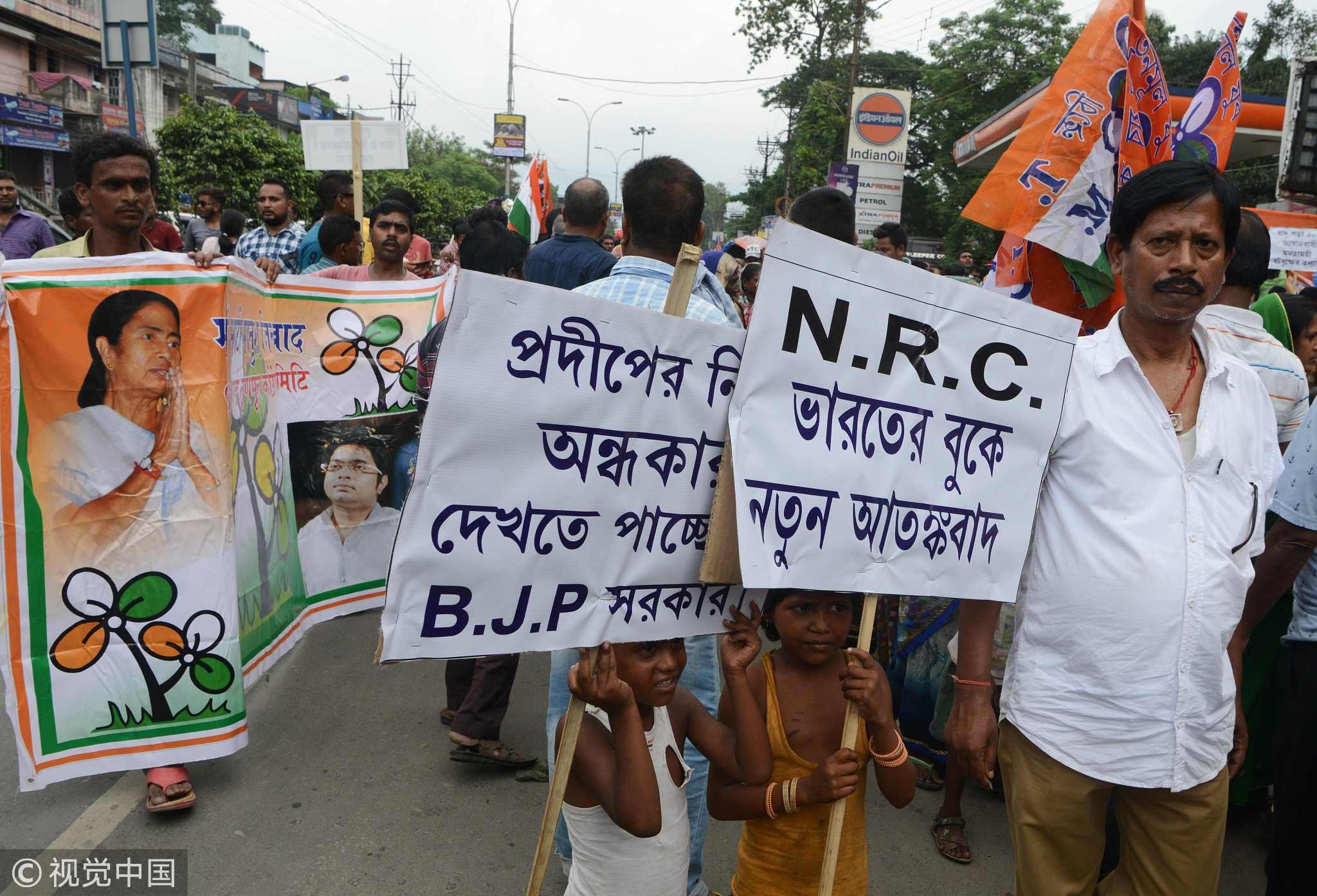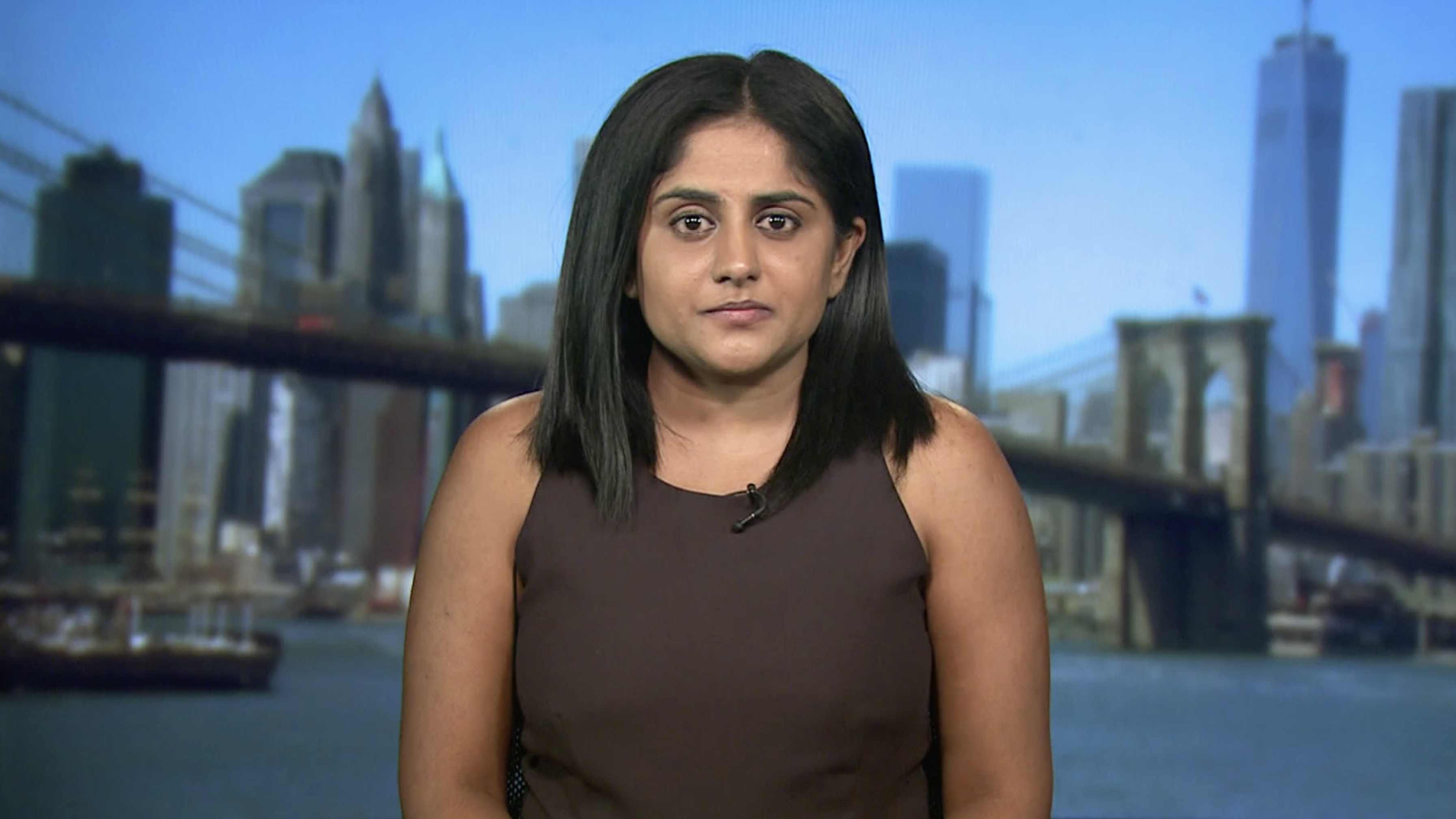
Opinions
10:59, 15-Aug-2018
The Heat: India needs to deal with the immigrants issue rationally
Updated
10:19, 18-Aug-2018
CGTN's The Heat

India’s government looked into the citizenship status of almost 33 million people in the northeastern state of Assam. Four million people in the region could not prove that they, or their parents, lived in the region before 1971, and thus are facing a sort of citizenship limbo.
The issue is on the boil in India, and competing views spread out on the whole opinion spectrum. Given the complexity of its history, the problem is now framed as a combination of political, national security, humanity, and religious dilemma.
According to Sadanand Dhume, a resident fellow at the American Enterprise Institute, the long-standing conflict between Hindus and Muslims in the region started in the 1980s when local Assamese protested violently against what they considered “illegal immigrants” for six years. Those “illegal immigrants” were refugees crossing the border from Bangladesh in the 1970s. Among these refugees were Hindus and Muslims, laying the basis of the conflict.
“The problem started out as being more about language than religion,” Sadanand said. “Over the years it has metamorphosed and the issue is framed more in religious terms: Bengali speaking Muslims as opposed to Bengali speaking Hindu.”

Indian children along with Trinamool Congress party supporters hold placards reading "NRC- New Terrorism acts in India" on August 4, 2018. / VCG Photo.
Indian children along with Trinamool Congress party supporters hold placards reading "NRC- New Terrorism acts in India" on August 4, 2018. / VCG Photo.
Sushil Pandit, a journalist and co-founder of Roots-in-Kashmir, is a typical deportation supporter, seeing immigrants as “infiltrators” in seek of financial benefits and causing social security problems in the region.
“These people are not asylum seekers,” he said. “These are economic migrants looking for jobs.”
In the eyes of him and his fellows, Assam is facing a demographic invasion from Bangladesh, and those migrants need to be “stopped, identified, and deported.”
“Will you allow your country to be inundated in the name of humanity?” He questioned.
Opposed to his opinion, Rana Ayyub, a journalist and writer, showed contempt to the court order out of her belief in humanity. She saw what happened in Assam as a “communal issue” and a “humanitarian crisis.” She criticized the arbitrary identity recognition process. The seemingly legitimate process turned out to be discriminatory and questionable.
“A month is not enough time for a population which is mostly underprivileged, uneducated, and even not has some legal birth certificates in place,” Rana said in a recent debate. She felt even worse when the ruling party announced in public that should the Assam case work out as they supposed, they would like to implement this in other states of India.
01:20

Suchitra Vijayan, a lawyer and founding director of The Polis Project, weakened the legitimacy of the court order from a law perspective.
“The government and the court are simply hiding behind the language of the law,” she said. She then articulated how the Supreme Court of India are manned by people who often have serious prejudice, just as those taken by BJP. Therefore, the Supreme Court of India is a mandated organization by no means at odds with the will of government leaders.
Other than that, the actual procedure is deeply problematic. The limited time of the reporting process is not even enough for the citizens to figure out why they are being deported from the place where they grew up.
“Given the global political situations, deporting four million people is not possible to be a unilateral act,” she added. “We need international corporations.”
Sadanand has a different prediction of the issue. According to his research, BJP, the Congress and other parties are getting support on the basis of their identity, and therefore have sufficient motivation of disqualifying Muslims as voters. However, forcing four million people to become stateless after living for two generations is so unrealistic, that the order might turn out to be a bluffing before actually diminishing immigrants’ voting right. Like Suchitra and Sana, he felt pity for the suffering of immigrants.
“This issue should have been discussed rationally,” he said.
The Heat with Anand Naidoo is a 30-minute political talk show on CGTN. It airs weekdays at 7:00 a.m. BJT and 7:00 p.m. Eastern in the United States.
(Cover: People stand in line to check their names on the first draft of the National Register of Citizens (NRC) at Gumi village of Kamrup district in the Indian state of Assam, January 1, 2018./ VCG Photo.)

SITEMAP
Copyright © 2018 CGTN. Beijing ICP prepared NO.16065310-3
Copyright © 2018 CGTN. Beijing ICP prepared NO.16065310-3